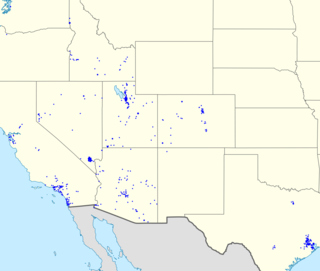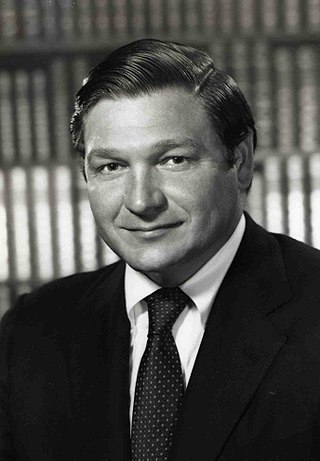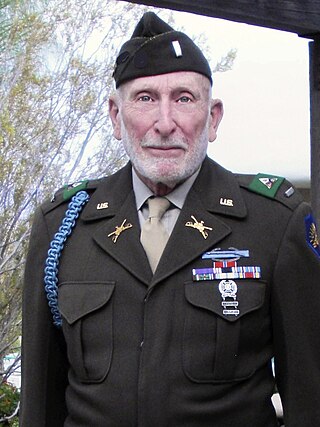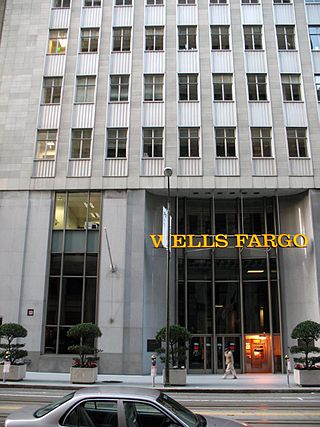East West Bank, the primary subsidiary of East West Bancorp, Inc., is the largest publicly traded bank headquartered in Southern California, United States. It was founded in 1973 in Los Angeles to serve the Chinese American community in Southern California. In 2023, East West expanded its footprint in Asia with the opening of a representative office in Singapore. Forbes magazine has recognized East West Bank as one of "America's Best Banks" since 2010. East West earned the number one spot in S&P Global Market Intelligence's 2022 Ranking of U.S. Public Banks by Financial Performance.

U.S. Bancorp is an American bank holding company based in Minneapolis, Minnesota, and incorporated in Delaware. It is the parent company of U.S. Bank National Association, and is the fifth largest banking institution in the United States. The company provides banking, investment, mortgage, trust, and payment services products to individuals, businesses, governmental entities, and other financial institutions. As of 2019, it had 3,106 branches and 4,842 automated teller machines, primarily in the Western and Midwestern United States. In 2023 it ranked 149th on the Fortune 500, and it is considered a systemically important bank by the Financial Stability Board. The company also owns Elavon, a processor of credit card transactions for merchants, and Elan Financial Services, a credit card issuer that issues credit card products on behalf of small credit unions and banks across the U.S.
Bank of the West was an American financial institution headquartered in San Francisco, California, United States. It had more than 600 branches and offices in the Midwest and Western United States.
CoreStates Financial Corporation, previously known as Philadelphia National Bank (PNB), was an American bank holding company in the Philadelphia, Pennsylvania, metropolitan area.
The Bank of Hawaii Corporation is a regional commercial bank headquartered in Honolulu, Hawaii. It is Hawaii's second oldest bank and its largest locally owned bank in that the majority of the voting stockholders reside within the state. Bank of Hawaii has the most accounts, customers, branches, and ATMs of any financial institution in the state. The bank consists of four business segments: retail banking, commercial banking, investment services, and treasury. The bank is currently headed by chairman, president and chief executive officer, Peter S. Ho.
California Federal Bank, known as CalFed, was a savings bank headquartered in Los Angeles, California, at 5670 Wilshire Boulevard. It operated 352 branches, most of which were in California. In 2002, the bank was acquired by Citigroup.

Union Bank was an American national bank with 398 branches in California, Washington and Oregon. It was owned by MUFG Americas Holdings Corporation and was acquired by U.S. Bancorp in December 2022. It was headquartered in New York City and had commercial branches in Dallas, Houston, New York and Chicago, in addition to two international offices.
This article outlines the history of Wells Fargo & Company from its merger with Norwest Corporation and beyond. The new company chose to retain the name of "Wells Fargo" and so this article is about the history after the merger.

First Interstate Bancorp was a bank holding company based in the United States that was taken over in 1996 by Wells Fargo. Headquartered in Los Angeles, it was the nation's eighth largest banking company.

Zions Bancorporation is a national bank headquartered in Salt Lake City, Utah. It operates as a national bank rather than as a bank holding company and does business under the following seven brands: Zions Bank, Amegy Bank of Texas, California Bank and Trust, National Bank of Arizona, Nevada State Bank, Vectra Bank Colorado, and the Commerce Bank of Washington. It has 416 branches and over 1 million customers. It was founded by the Church of Jesus Christ of Latter-day Saints in 1873, although the church divested its interest in the bank in 1960.

Wells Fargo & Company is an American multinational financial services company with a significant global presence. The company operates in 35 countries and serves over 70 million customers worldwide. It is a systemically important financial institution according to the Financial Stability Board, and is considered one of the "Big Four Banks" in the United States, alongside JPMorgan Chase, Bank of America, and Citigroup.

Carl Edwin Reichardt Jr. was an American banking executive and chief executive officer of Wells Fargo Bank.

Donald B. Prell was an American World War II veteran, venture capitalist and futurist who created Datamation, the first magazine devoted solely to the computer hardware and software industry.

PacWest Bancorp is an American bank holding company based in Beverly Hills, California, with one wholly owned banking subsidiary, Pacific Western Bank. It is a subsidiary of Banc of California.
Pacific Premier Bancorp, Inc. is a registered holding company under the Bank Holding Company Act of 1956 headquartered in Irvine, California, US. Its principal business focuses on Pacific Premier Bank, which offers a range of financial services to individuals, businesses, and professionals. The bank operates numerous branches in California, Arizona, Nevada, and Washington. Pacific Premier Bank offers commercial escrow services and facilitates 1031 Exchange transactions through its Commerce Escrow division.

Norwest Corporation was a banking and financial services company based in Minneapolis, Minnesota, United States. In 1998, it merged with Wells Fargo & Co. and since that time has operated under the Wells Fargo name.
Theodore F. Craver Jr. is an American business executive. He is the retired chairman, president and chief executive officer (2008–2016) of Edison International, a public utility holding company listed on the New York Stock Exchange with $13 billion in revenues and $57 billion in assets.

Kenneth T. Neilson is an American banker and business executive. He is the former president and chief executive officer of Patriot National Bancorp, Inc. and Patriot Bank, N.A. He has served as director since October 2010.

The Wells Fargo cross-selling scandal was caused by creation of millions of fraudulent savings and checking accounts on behalf of Wells Fargo clients without their consent or knowledge due to aggressive internal sales goals at Wells Fargo. News of the fraud became widely known in late 2016 after various regulatory bodies, including the Consumer Financial Protection Bureau (CFPB), fined the company a combined US$185 million as a result of the illegal activity. The company faces additional civil and criminal suits reaching an estimated $2.7 billion by the end of 2018. The creation of these fake accounts continues to have legal, financial, and reputational ramifications for Wells Fargo and former bank executives as recently as September 2023.

Wells Fargo was an American banking company based in San Francisco, California, that was acquired by Norwest Corporation in 1998. During the California Gold Rush in early 1848 at Sutter's Mill near Coloma, California, financiers and entrepreneurs from all over North America and the world flocked to California, drawn by the promise of huge profits. Vermont native Henry Wells and New Yorker William G. Fargo watched the California economy boom with keen interest. Before either Wells or Fargo could pursue opportunities offered in the Western United States, however, they had business to attend to in the Eastern United States.











